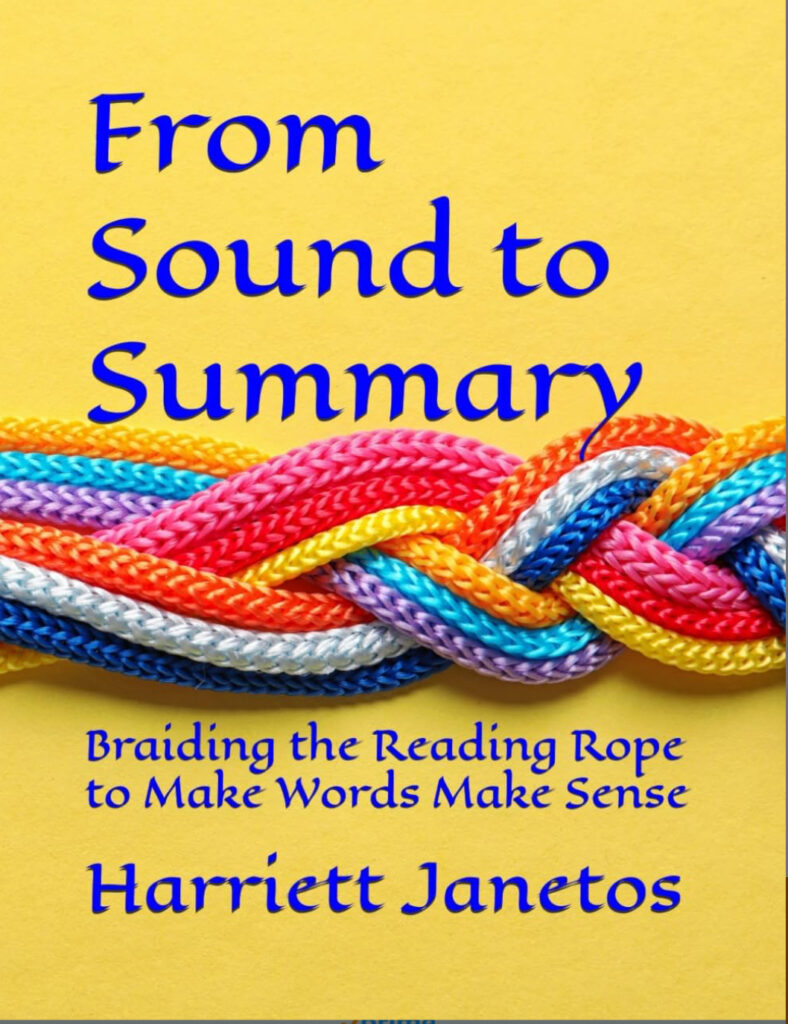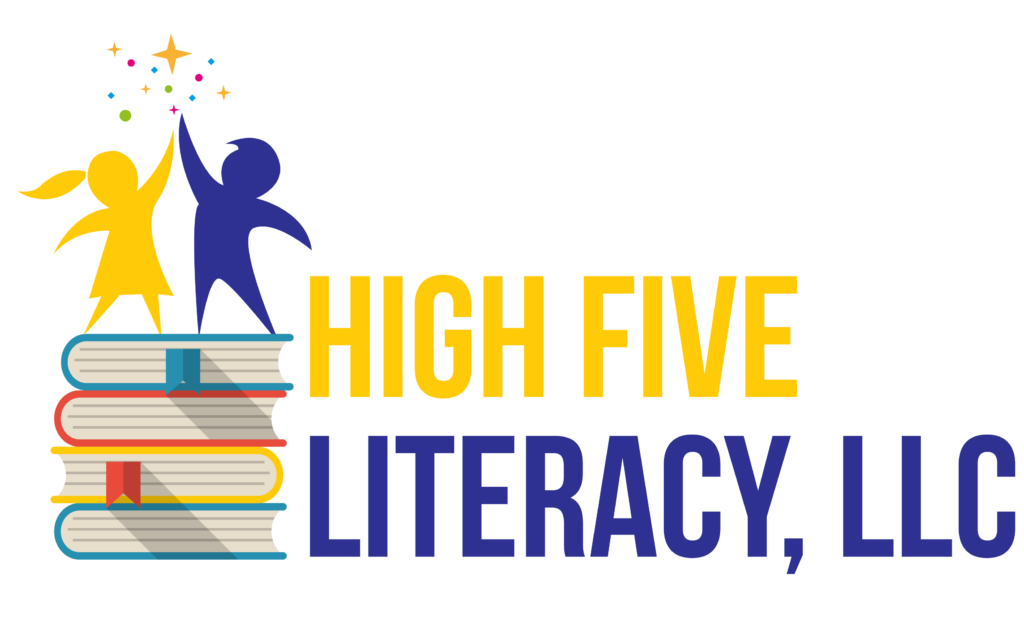GUEST BLOGGER
Harriett Janetos, Reading Specialist
Author, From Sound to Summary: Braiding the Reading Rope to Make Words Make Sense

I read Bertolt Brecht’s play Galileo several decades ago in college, but the impact of these simple lines has never faded:
Andrea: Unhappy the land that has no heroes!
Galileo: No. Unhappy the land that needs heroes.
Another historical period, the French Revolution, inspired Dickens to write: “It was the best of times, it was the worst of times”—which is how I’ve been feeling recently in the “science of reading space”: showered with the riches of research; cowed by the overabundance of recommendations. So we turn to experts for guidance and look for heroes in the field to emulate.
Hero worship is ubiquitous in all walks of life, and Google tells us it’s because it “can be considered a fundamental aspect of human behavior: inspiration and aspiration.” I’ll buy that. When I first wrote to Linnea Ehri proposing a cross-country trip to meet with her to discuss my many questions related to reading instruction, I framed my request apologetically, with the sheepish acknowledgement that I was sounding a lot like a groupie. But my “worship” has been well-placed because this literacy giant always speaks through a measured tone tethered to research, cautiously contextualizing recommendations that carefully distinguish between possibilities, probabilities, and certainties.
Recently, however, I’ve been thinking a lot about my other literacy heroes after reading Emina McLean’s blog Has the Science of Reading become a rampant, thought-terminating cliche? where she states: “Many educators follow experts blindly in cult-like wonder. And to be fair, educators should be able to trust experts and systems to advise them, but often they can’t, at least not in a practical sense.”
Since then, I’ve been wondering whether my hero worship says more about me and the allure of aspiration than it does about my idols. Though one can certainly be cautioned for craving validation from those at the top, the propensity to position oneself alongside greatness is a natural inclination.
Thus, when Timothy Shanahan wrote a blog in November, 2021, RIP to Advanced Phonemic Awareness, which drew comments not only from its focus, David Kilpatrick, but also from Linnea Ehri, Susan Brady, Isabel Beck, and Nathan Clemens (all well-schooled in phonemic awareness), I Instinctively sat up and took notice as these experts weighed in on the efficacy of practicing phoneme substitution and deletion. The discussion ended in agreement that more research was needed, and David Kilpatrick’s closing comments had a collegial tone: “Earlier this year I resumed working on [research]. Given concerns voiced here, I’m happy to bump up that project on my priority list.”
Isn’t this type of exchange exactly what we want from researchers, an acknowledgement of the unknown and a plan to know it? Emina McLean tells us that there is “so much more we have to figure out on the ground, more than any research paper can provide and likely will ever provide.”
And here’s how education professor Carl Hendrick explains it: “This is the difference between what teachers do and what experts do: Teachers have a very broad understanding of what they’re teaching. Very often experts have a narrow one . . . Teachers can look at a kid in the middle of a lesson and by the expression on their face go, ‘You’re not getting it. I’m going to switch to this other explanation I’ve got in my drawer.’ It’s a phenomenal level of expertise not seen in many fields.”
In a similar, simpler vein, psychologist Steve Dykstra states: “You don’t know what the scientists know; but they don’t know what you know either.”
With unanimity in Shanahan’s comments section regarding the need for more targeted phonemic awareness research, it was clear to me that until that research was completed, I could trust my own expertise in a practical sense as much as, if not more than, I could trust a researcher’s tentative recommendations. At the very least, I could provide a classroom context for applying these recommendations.
So far, so good—a good example of experts concerned about lack of research regarding a specific instructional practice, exchanging views related to this practice, and calling for more research to settle their differences. This is helpful and hopeful.
But—how can we be certain that these expressed uncertainties wind their way down Mt. Olympus and cross paths with the average teacher? When a widely disseminated recommendation is stated as a certainty rather than a possibility, spreads quickly, gains momentum, and finally emerges fully-formed like Athena out of Zeus’s head and claims a seat in the staff room, this is worrisome. Isn’t this how the reading “stories” we were “sold” set up shop in our schools in the first place, forcing us decades later to disentangle the threads leading to the misdirection? As one local school board member told Emily Hanford about Lucy Calkins: “If Beyonce came and gave a private concert in my district, it would not have been a bigger deal for many of my teachers.”
Unfortunately, full transparency from researcher to practitioner is too often lacking as demonstrated in Nicola Bell’s A Deep Dive into Phonemic Proficiency, which explores the same disputes about advanced phonemic awareness skills that Timothy Shanahan does but also covers more contested ground. When Bell explains the recommendation in Equipped for Reading Success (EFRS) to teach an alternative to phonics for children not proficient in phonemic awareness, in a flash one’s trust is shaken. She quotes an excerpt declaring that this alternative approach is a “developmentally more appropriate starting point than phonics.”
This declaration prompted me to take a look at the book EFRS recommends, Let’s Read. Suffice it to say that the methods described are completely incompatible with what research has reliably revealed about effective reading instruction. Fortunately, I am in a position to readily reject these proposed methods and did so. As an informed practitioner, I understand both from research as well as a “practical sense” that this approach is a far cry from evidence-based reading instruction, so I am positioned to evaluate its shortcomings. I expressed my concerns to the publisher of EFRS, emphasizing that I was “shocked at how antithetical this approach is to current reading research” and recommending that the pages describing it simply be removed because “they really and truly undermine the credibility of the book,” a credibility forged, in part, from the helpful guidelines in chapter 6 detailing activities for promoting orthographic mapping, some of which I include in my instructional guide to reading.
In his webinar, An Adaptive, Scientific Approach to Uncertainty, Steve Dykstra says “We are not required to be right; we are required to have ‘right’ reasons that we can explain to other professionals . . . Know where the science ends and your best judgment begins.” Tasking teachers with evaluating expert advice and determining the “right” reasons to accept or reject it is a tall order. But do we have a choice? At the very least we need to be wary of research that can be either insufficient or inconclusive–or both. Moreover, we need to consider recommendations from experts within the parameters of our own practice, which provide the teaching context necessary to help guide the instructional choices we make. Above all, teachers need to know the difference between an informed expert and a self-interested influencer, while also acknowledging that experts can be so far removed from the classroom that they may get the research right but the recommendation wrong.
A final concern from Emina McLean: “We have so many experts across the globe disseminating information via professional learning who rarely have the practical expertise to support sound implementation, so en masse we’ve activated the adage of ‘a little bit of knowledge is dangerous.’”
I began with Galileo but will end with Caesar. Cassius says: The fault, dear Brutus, is not in the stars, but in ourselves. And I mean all of our selves. All of us—educators and experts alike, educational entrepreneurs and publishers peddling their wares—we all need to face our collective faults related to overconfidence and find the professional humility necessary to frame uncertainty within the realm of the day-to-day practicalities of teaching, within the coalface consequences—to borrow Emina’s evocative phrase—of the choices we make. In short, we need to bestow upon ambiguity and inconclusiveness the deep respect they deserve.
Let’s resign our heroes to Homeric legend and reassign a shared burden for decision-making in the school setting.
